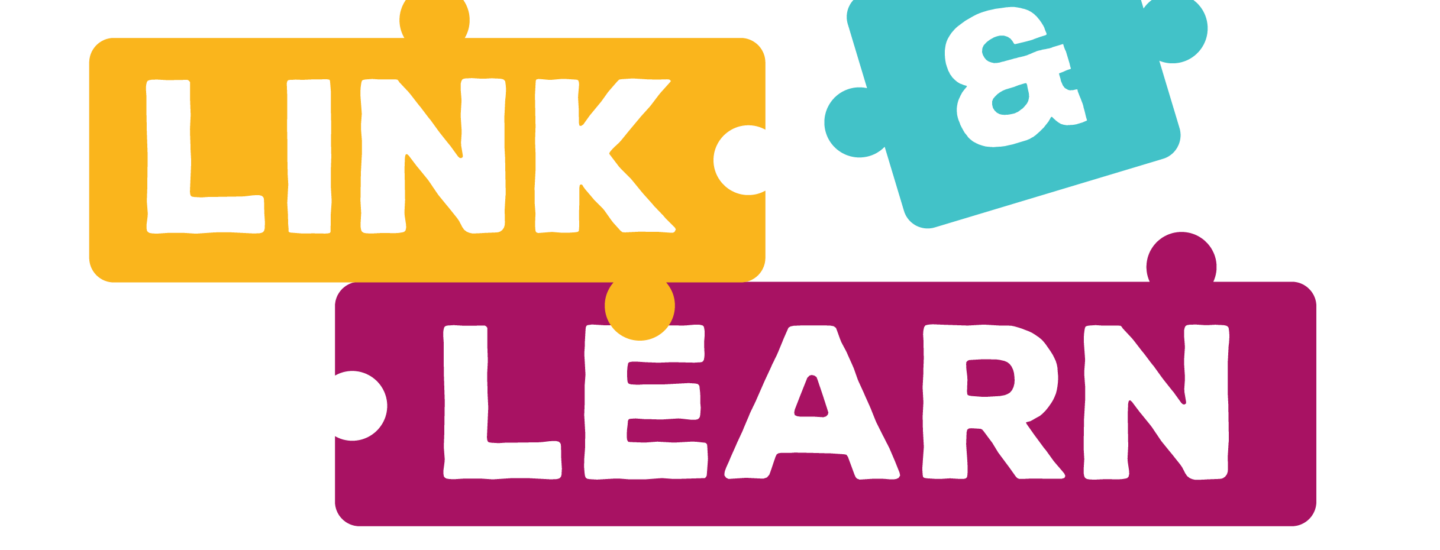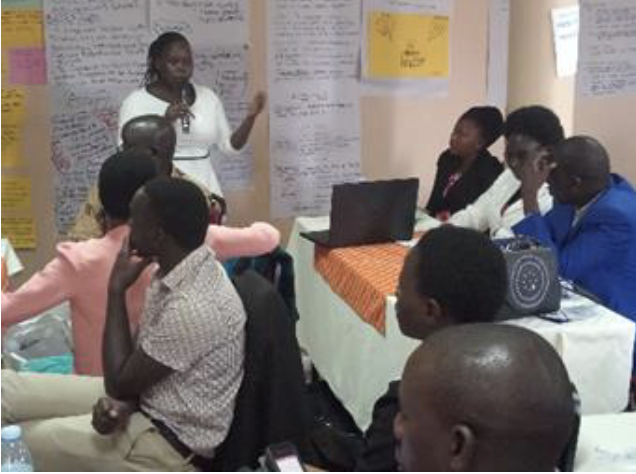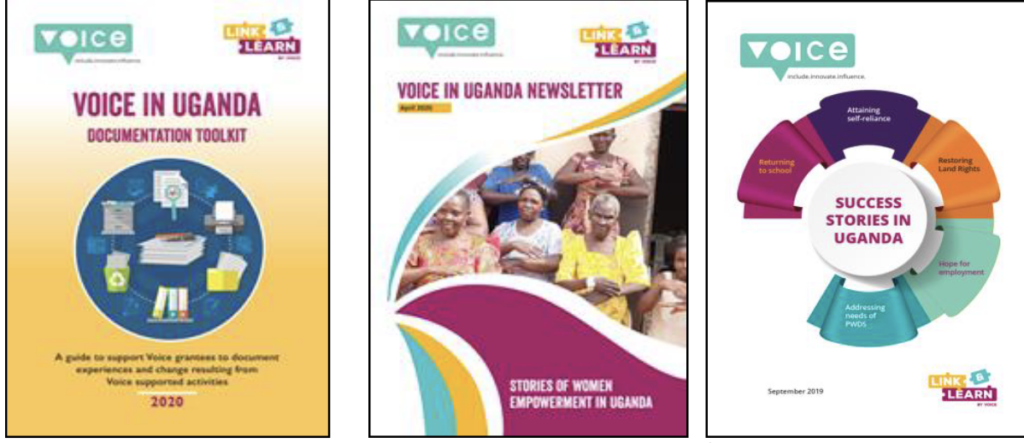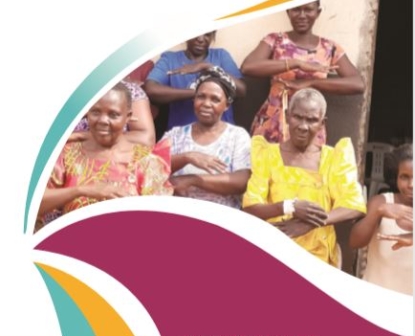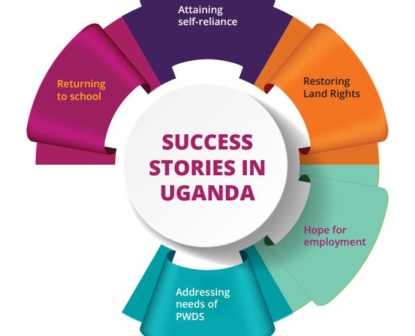Project
Connecting Voice(s) Linking and Learning Bridge Action
-
Amount Funded
199,971 EUROProject Duration
01 Apr 2019 - 31 May 2021 -
-
Lead organisation
-
Legal Aid Service Providers Network Uganda (LASPNET) provides a collaborative framework and strategic linkages for Legal Aid Service Providers (LAPS) in the country. The founders were heads of Legal Aid service providers who Included Foundation for Human rights Initiative, Legal Aid Clinic of Law Development Centre, FIDA -U. The Network has a membership of 52 organisations across 70 districts. Through its membership, LASPNET provides a collective voice, to engage the sector on access to justice issues aimed at improving service delivery in the justice system.
The Network is established and governed by a General Assembly comprised of Legal Aid Service Providers from which the Board of Directors is elected every two years to provide oversight and policy implementation. The Executive Director who heads the Secretariat works closely with the Board of Directors in policy and institutional governance to facilitate management of programmes and operations of the Network. LASPNET’s strength lies in the diverse membership and numbers spread across regions; system structures and tools like IIMS as well as our networking and collaborative platforms.
-
Organisation
Legal Aid Service Providers Network Uganda (LASPNET) provides a collaborative framework and strategic linkages for Legal Aid Service Providers (LAPS) in the country. The founders were heads of Legal Aid service providers who Included Foundation for Human rights Initiative, Legal Aid Clinic of Law Development Centre, FIDA -U. The Network has a membership of 52 organisations across 70 districts. Through its membership, LASPNET provides a collective voice, to engage the sector on access to justice issues aimed at improving service delivery in the justice system.
The Network is established and governed by a General Assembly comprised of Legal Aid Service Providers from which the Board of Directors is elected every two years to provide oversight and policy implementation. The Executive Director who heads the Secretariat works closely with the Board of Directors in policy and institutional governance to facilitate management of programmes and operations of the Network. LASPNET’s strength lies in the diverse membership and numbers spread across regions; system structures and tools like IIMS as well as our networking and collaborative platforms.
-
Project
As the linking and learning facilitator for the Linking and Learning Bridge Action project, Legal Aid Service Providers Network Uganda (LASPNET) has partnered with Strategic Link (SL) Consult Limited (a consultancy firm with technical expertise) to advance the use of innovative approaches to linking and learning that will not only amplify voices of the marginalised groups but also build capacity of the different grantees involved to support delivery of high-quality, data-driven interventions by the grantees.
The facilitator does this through; connecting grantees, creating a linking and learning environment, doing documentation as well as knowledge management. With the experience and expertise gained over the years supporting various stakeholders in Uganda, LASPNET leverages on the experience of Strategic Link Consult (SL) Consult Uganda to bring quality to the capacity building interventions through use of more innovative approaches such as Visualisation in Participatory Programmes (VIPP) that enlists more participation of women, youth, persons with disabilities and marginalised groups such as LGBTs in influencing their learning agendas.
Lessons drawn from this experience will enrich the Organisation’s delivery of other legal aid services and human rights programmes in Uganda.
-
-
As the linking and learning facilitator for the Linking and Learning Bridge Action project, Legal Aid Service Providers Network Uganda (LASPNET) has partnered with Strategic Link (SL) Consult Limited (a consultancy firm with technical expertise) to advance the use of innovative approaches to linking and learning that will not only amplify voices of the marginalised groups but also build capacity of the different grantees involved to support delivery of high-quality, data-driven interventions by the grantees.
The facilitator does this through; connecting grantees, creating a linking and learning environment, doing documentation as well as knowledge management. With the experience and expertise gained over the years supporting various stakeholders in Uganda, LASPNET leverages on the experience of Strategic Link Consult (SL) Consult Uganda to bring quality to the capacity building interventions through use of more innovative approaches such as Visualisation in Participatory Programmes (VIPP) that enlists more participation of women, youth, persons with disabilities and marginalised groups such as LGBTs in influencing their learning agendas.
Lessons drawn from this experience will enrich the Organisation’s delivery of other legal aid services and human rights programmes in Uganda.
-
The L&L Facilitators connected all Voice grantees and stakeholders in a country-wide and/or multi-country network or platform was significant in the project implementation and its visibility. The Voice linking and learning online platform was developed (www.linkingandlearning.ug). To-date, the Voice Digital Platform has enabled Voice grantees to upload, download and share content i.e. their project documents, publications, audio and visual/videos materials, as well as YouTube links to their various knowledge products. The WhatsApp platform as well as other online avenues created by the L&L Facilitators e.g. the YouTube channel provide another platform for grantees to interact and share information. These have immensely benefitted Voice grantees who continue to utilize the online digital platforms for sharing information and networking as like-minded stakeholders which has helped them amplify their voices.
“The digital platforms have enables us not only to connect with one another but also to share and learn from each other’s different interventions…” Grantee from the Greater North
Organize linking and learning events to foster connectedness of Voice grantees. The linking and
learning facilitators have actualized this strategic objective through organizing Voice annual linking and learning events, kick-off meetings, holding community of stakeholder events, community of practice (CoP) events. These provided opportunity for the grantees and rightsholders to share, learn and unlearn and as a result form formidable relations of synergies to better their individual project interventions. Through such an intervention, the Voice grantees continue to relate and they have emulated the good practices acquired during their project implementation into other projects.
A section of grantees with a Facilitator during a Voice Annual Event. 
grantees attending a Kick-off Meeting “This is a great initiative of bringing all of us together to share, relate and appreciate inclusivity of all…I did not know much about the LGQBTI community before this event” Executive Director, Sensitize Uganda.
Also, the onsite mentorship and training visits offered to grantee project staff and rightsholders
have been continued to be of great support to both the project staff, other staff members and
the organizations as a whole. Through these visits, grantees’ needs were identified such as documentation support, research, advocacy skills, community engagement support and
resource mobilization among other needs. The Facilitators responded to the needs by providing
holistic and tailored on-site mentorship, training and support to grantees. The knowledge and
skills provided by the Facilitators continue to be of great help to the grantees helping them to
effectively implement their Voice-supported projects.In an effort to enhance the knowledge base, visibility and Voices, the L&L Facilitators supported
grantees to produce and disseminate various knowledge products for internal and external
consumption for various stakeholders. The knowledge products include Voice Video
documentaries, the Voice Documentation Tool Kit, Annual Newsletters, Promising Approaches
of Work, and Success Stories among others. The knowledge products have continued to be of
great use to both the old and new grantees and rightsholders during project implementation.
Some of the knowledge products developed by the L&L Facilitators (Voice Documentation Toolkit (left), one the Voice Newsletters (middle) and a Success Stories booklet (right) “The documentation toolkit is such an elaborate and supportive reference tool to help us in improving our story writing and other presentations, not only for the Voice-supported project but also other organization assignments” Project Officer; Copyright Institute Uganda.
In conclusion, the “Connecting Voices”- Linking and Learning Bridge Activity project is a source
of pride not only for the Linking and Learning Facilitators but also for the many grantees and
rightsholders that have benefited from the various L&L interventions. Because of the Voice
Project, many Voice-supported grantees and their rightsholders have been able to gain
knowledge and skills to effectively amplify their Voices. The fruits of this support and impact
are evidenced in grantees such as SORAK, Center for Constitutional Governance (CCG), Gulu
Women’s Economic Development and Globalization (GWED-G) that have been able to win a
second round of grants from Voice, and also from other developmental partners because of the
capacity they have developed as a result of the empowerment from Voice. -
News

